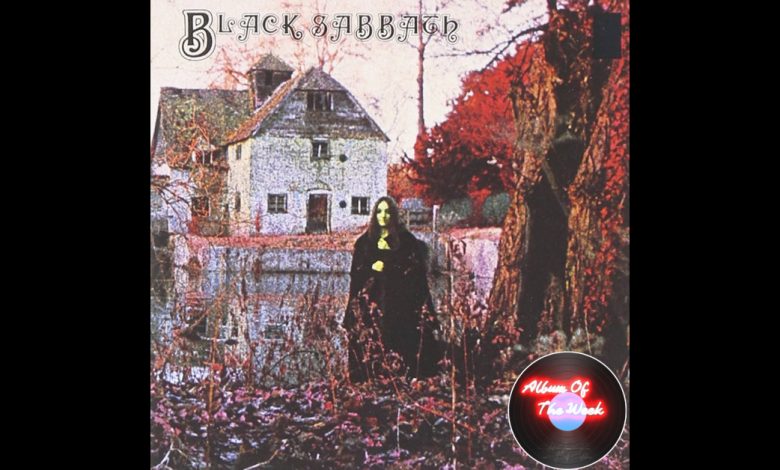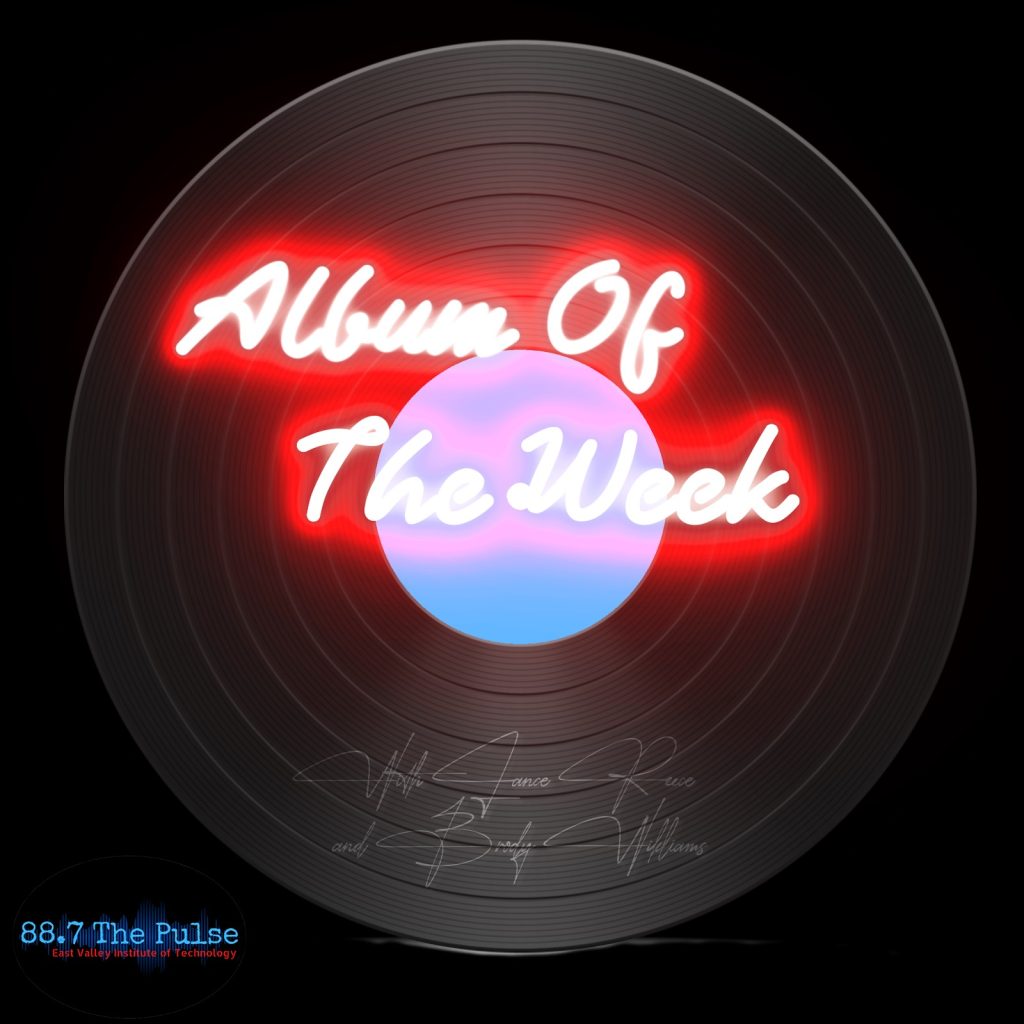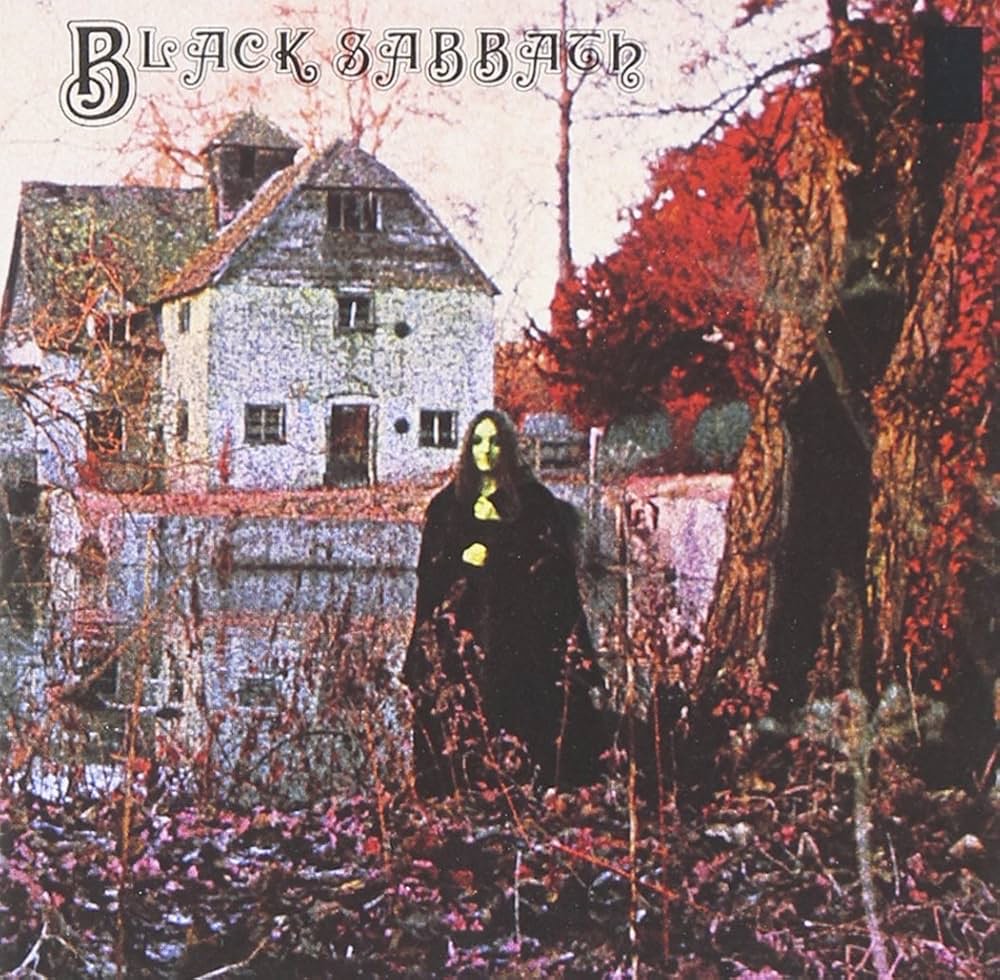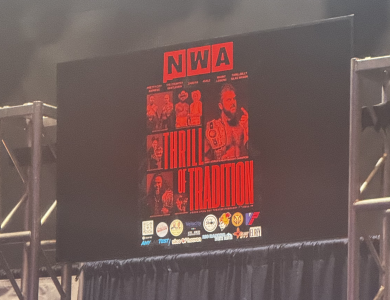Pulse Album of the Week: Black Sabbath’s Self-Titled Debut

By Lance Reece

Hey there, rock fans and metal-heads! I’m Lance Reece, joined by Spike, Ian Escoboza, and Adam Oberg, bringing you Pulse Album of the Week. Tune in live every Sunday at 7:00 PM on 88.7 The Pulse, or stream us on 887thepulse.com or our mobile app, 88.7 The Pulse Arizona. This week, we’re diving deep into Black Sabbath, the groundbreaking 1970 debut album that birthed the genre of heavy metal. As we celebrate this iconic album, we also honor Ozzy Osbourne, the Prince of Darkness, whose recent passing leaves a significant void in music history. Let’s crank it up and explore why Black Sabbath remains a cornerstone of rock and metal.
A Raw, Dark Beginning in Birmingham
In 1969, Birmingham, England, a gritty, industrial hub, gave rise to four working-class musicians: Ozzy Osbourne (vocals), Tony Iommi (guitar), Geezer Butler (bass), and Bill Ward (drums). Originally known as Earth, they rebranded themselves Black Sabbath after a 1963 horror film, aiming to create music as chilling as a scary movie. Their self-titled debut album, Black Sabbath, was released on February 13, 1970 (UK) and June 1, 1970 (US). Remarkably, it was recorded in a single 12-hour session at Regent Sound Studios for a mere £600.
The recording setup was basic: a four-track tape machine, Shure microphones for Ozzy’s vocals and Ward’s Ludwig drums, and Iommi’s down-tuned Gibson SG and Butler’s Fender Precision Bass plugged directly into the mixing desk. There were no effects or overdubs; just raw, unadulterated power.
The Sound That Defined Heavy Metal
Black Sabbath opens with its chilling title track, a true sonic earthquake. Rain falls, a bell tolls, and Iommi’s iconic tritone riff, often called the “devil’s interval,” unleashes a wave of dread. Butler’s lyrics, inspired by a ghostly vision, paired with Ozzy’s haunting wail, create a vibe that is pure doom. As Spike accurately put it: “That riff is the DNA of metal.”
Tracks like “The Wizard” seamlessly blend bluesy grit with Ozzy’s harmonica, evoking a mystical edge. “N.I.B.” (named for Ward’s goatee, not “Nativity in Black”) kicks off with Butler’s funky bass and tells a quirky tale of Lucifer’s love. The album also features covers like “Evil Woman” and “Warning,” which stretch into riff-heavy jams, showcasing Iommi’s fiery solos. The album’s raw, live feel, complete with its imperfections, is what makes it timeless.

Standing Out in a Crowded Scene
In 1970, Black Sabbath faced fierce competition in the burgeoning rock scene. Led Zeppelin’s Led Zeppelin II (1969) offered bluesy swagger, Deep Purple’s In Rock (1970) leaned into virtuosic hard rock, and proto-metal acts like Blue Cheer (Vincebus Eruptum, 1968) and Iron Butterfly (In-A-Gadda-Da-Vida, 1968) laid some early groundwork. However, Sabbath’s unrelenting darkness and simplicity truly set them apart. As National Geographic notes, the tritone’s “auditory roughness” hooks listeners with a primal thrill, a key to metal’s enduring appeal.
Critics initially panned Black Sabbath; Rolling Stone famously called it “discordant.” Yet, fans embraced it, propelling the album to No. 8 in the UK and No. 23 in the US, eventually achieving platinum status. Its eerie cover art, featuring a ghostly figure at Mapledurham Watermill, and an inverted cross in the gatefold fueled rumors of Satanism, which the band consistently dismissed as label hype.
The Birth of a Genre and a Lasting Legacy
Black Sabbath didn’t just popularize heavy metal; it fundamentally defined it. While proto-metal bands introduced heavy riffs, Sabbath’s cohesive vision characterized by down-tuned guitars, occult themes, and raw intensity created the genre’s enduring blueprint. Metallica’s James Hetfield famously stated, “No Sabbath, no Metallica,” and Slash called their work “the heaviest bleep” he’d ever heard. Bands like Slayer, Judas Priest, and Iron Maiden built upon this foundation, shaping the future of metal.
Ozzy Osbourne’s raw, mournful voice was undoubtedly the album’s heart. After Black Sabbath, the band’s Paranoid (1970) delivered anthems like “Iron Man” and “Paranoid,” further cementing their legend. Despite Ozzy’s 1979 departure amid addiction struggles, his solo career soared with Blizzard of Ozz (1980), significantly influencing metal’s theatrical side. His passing on July 22, 2025, at 76, just weeks after a final Black Sabbath charity show, marked a somber milestone. As The New York Times wrote, Ozzy’s ability to reinvent himself kept him a metal icon for over 50 years.
Artists and Bands Influenced by Black Sabbath and Ozzy Osbourne
The profound impact of Black Sabbath and Ozzy Osbourne reverberates through generations of rock and metal, laying the groundwork for countless subgenres and inspiring a vast array of musicians.
- Metal Pioneers: Judas Priest and Iron Maiden directly built upon Sabbath’s dark, heavy sound.
- Thrash Metal: Bands like Metallica and Slayer credit Sabbath as a primary influence, drawing from their heavy riffs and dark themes to forge the aggressive sound of thrash metal.
- Doom Metal: Black Sabbath’s initial sound directly spawned the entire doom metal genre, with bands such as Pentagram and Candlemass adopting their slow, heavy riffs and somber atmosphere.
- Grunge and Alternative: Even outside traditional metal, Sabbath’s influence is evident in bands like Soundgarden and Alice in Chains, who incorporated their heavy, detuned riffs and moody undertones.
- Ozzy’s Solo Impact: Ozzy Osbourne’s solo career, particularly with Blizzard of Ozz, continued to inspire. His theatricality and blend of catchy melodies with heavy riffs influenced subsequent vocalists and guitarists like Zakk Wylde.
Why Black Sabbath Still Matters
Black Sabbath is truly the Big Bang of heavy metal, a raw, urgent masterpiece that sounds as fresh today as it did in 1970. Its profound influence on bands from Metallica to Soundgarden, across various subgenres of rock and metal, underscores its timeless power. It’s an essential listen for any rock fan or anyone interested in the origins and evolution of heavy music. Join us on Pulse Album of the Week at 7:00 PM on 88.7 The Pulse, or stream us at 887thepulse.com or our app, 88.7 The Pulse Arizona, to explore its incredible legacy. Rest in peace, Ozzy; you truly gave us the sound of darkness.
Listen to Black Sabbath’s Self-Titled album here




